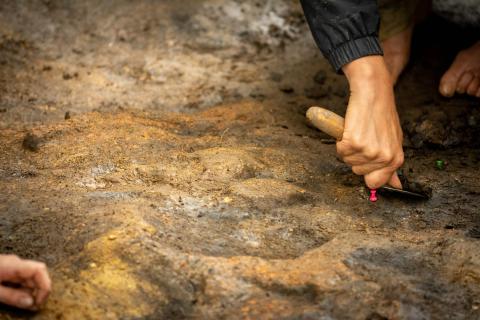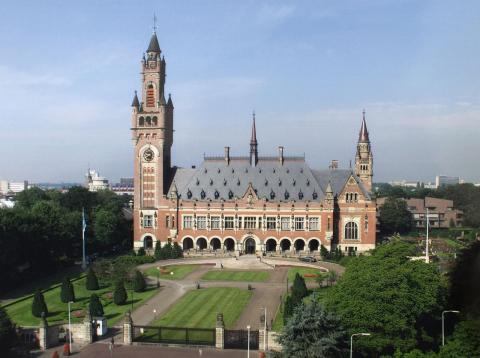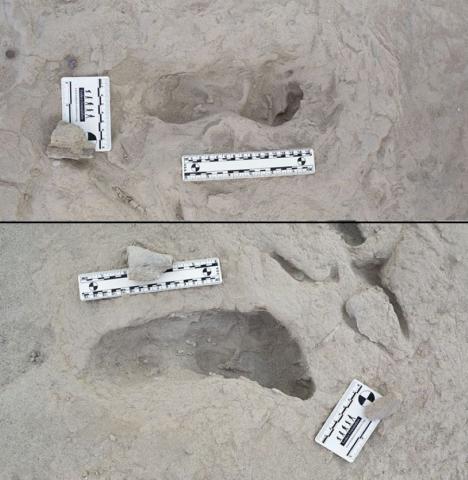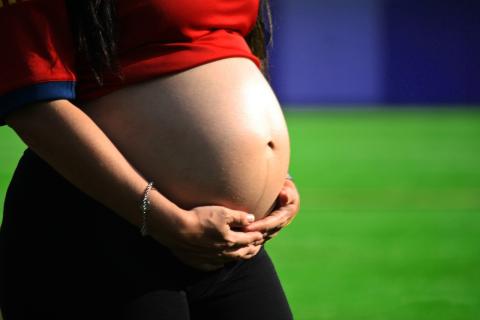
Rovira i Virgili University
If you are the contact person for this centre and you wish to make any changes, please contact us.
Researcher at the Catalan Institute of Human Paleoecology and Social Evolution (IPHES-CERCA), associate professor at Rovira i Virgili University, and co-director of the Atapuerca project
Researcher in the Food, Nutrition, Development, and Mental Health group, Department of Biochemistry and Biotechnology, Rovira i Virgili University
Researcher at the Centre for Environmental Food and Toxicological Technology (TecnATox) at Rovira i Virgili University
Researcher at IPHES-CERCA in Tarragona, associate professor at the Universitat Rovira i Virgili and associate researcher at the Muséum National d 'Histoire Naturelle (Paris, France)
Researcher at IPHES-CERCA and associate professor at the Rovira i Virgili University of Tarragona (URV)
Researcher at Tecnatox, a research centre of the Rovira i Virgili University in Reus
Researcher at the Laboratory of Toxicology and Environmental Health, Department of Basic Medical Sciences, Universitat Rovira i Virgili.
Associate Professor of Public International Law and International Relations at Rovira i Virgili University, coordinator of the Master's Degree in Environmental Law and researcher at the Tarragona Centre for Environmental Law Studies (CEDAT)

A research team led by the British Museum presents evidence in the journal Nature that humans were making fire – deliberately and not just taking advantage of natural fires – 400,000 years ago in Barnham (United Kingdom). The remains analysed, including burnt sediments, heat-damaged flint axes and pieces of pyrite, are much older than those recorded to date, which dated the deliberate use of fire to around 50,000 years ago in northern France.

The Planetary Health Diet promotes environmentally sustainable consumption, based, among other things, on increasing vegetable intake and reducing dairy and red meat consumption. Previous studies had found an association with better human health, although there were some conflicting results. Now, a study combining two cohorts of more than 150,000 people and a meta-analysis of 37 studies involving more than three million volunteers reinforces this association, finding that greater adherence to the diet is associated with lower all-cause mortality. The results are published in the journal Science Advances.

Today at 3:00 PM CEST, the International Court of Justice in The Hague, the principal judicial body of the United Nations, will issue its advisory opinion on the obligations of states in relation to climate change and the legal consequences of those obligations. The case stems from a Pacific youth initiative, taken up by the small island nation of Vanuatu, which led a coalition of 132 countries to request an opinion. It is expected to determine whether large, polluting countries should be held accountable for damages caused to small island nations.

An international team of geneticists and archaeologists has analysed more than 50 ancient Iron Age genomes from an area of southern Britain. Their conclusions are that they belonged to a matrilocal society, in which land was inherited through the female line and husbands moved in with the community of their wives. The results are published in the journal Nature and would be the first such finding in prehistoric Europe.

At least two hominin species - Homoerectus and Paranthropus boisei- coexisted in Kenya's Turkana Basin around 1.5 million years ago, a study published in Science confirms. The authors describe the first physical evidence of this coexistence in the form of footprints, found at several sites in the area.

The restriction of sugar during the first 1,000 days of life, starting from gestation, may protect against diabetes and hypertension in adulthood, according to a study published in Science. The research uses data from sugar rationing implemented in the United Kingdom after World War II. The findings highlight the long-term benefits of reduced sugar intake during early development.

A study conducted in Spain and five other European countries shows that exposure to mixtures of endocrine disruptors during pregnancy is associated with metabolic health problems in children. The research, published in JAMA Network Open, followed more than 1,100 mother-child pairs between 2003 and 2016 and found a correlation between measures of metabolic dysfunction in children aged 6-11 years, and their prenatal exposure to chemicals such as metals or organochlorine pesticides, among others. According to the authors, these results could be related to the current increase in metabolic syndrome across the lifespan, which results in an increased risk of cardiovascular disease and type 2 diabetes.

Following the agreement reached a few months ago between the European Parliament and Council, in today’s plenary session the European Parliament has approved a provisional political agreement with EU countries that includes new requirements to improve air quality by 2030. The agreement sets stricter targets and limits for several pollutants that have a serious impact on health, including particulate matter (PM2.5, PM10), NO2 (nitrogen dioxide) and SO2 (sulfur dioxide). Before being published in the Official Journal of the European Union, the law now must be adopted by the Council. EU countries will have two years to implement the new standards

Researchers have developed a new method to produce a heat-resistant plastic from renewable plant materials. They also claim that it is easily recyclable, decomposing into methanol, which would allow it to enter the circular economy. The research is published in the journal Science.

Switching some of the world's red meat consumption to forage fish - such as sardines, herring or anchovies - would reduce the number of deaths by between 500,000 and 750,000 by 2050, according to a study published in BMJ Global Health. The authors used data projections for that year for both red meat consumption and forage fish catches in 137 countries, substituting one for the other without exceeding the supply limit for the latter. The research estimates that sardines, herring and anchovies could replace 8% of the world's red meat, which would also serve to reduce the prevalence of diet-related diseases.